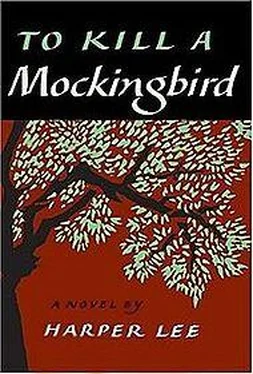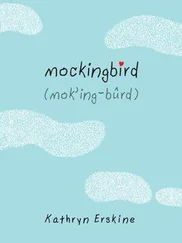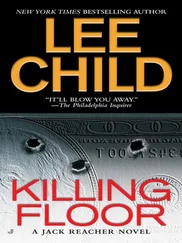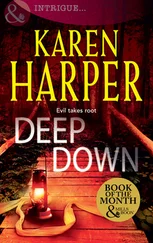Lee Harper - To Kill a Mockingbird
Здесь есть возможность читать онлайн «Lee Harper - To Kill a Mockingbird» весь текст электронной книги совершенно бесплатно (целиком полную версию без сокращений). В некоторых случаях можно слушать аудио, скачать через торрент в формате fb2 и присутствует краткое содержание. Жанр: Современная проза, на английском языке. Описание произведения, (предисловие) а так же отзывы посетителей доступны на портале библиотеки ЛибКат.
- Название:To Kill a Mockingbird
- Автор:
- Жанр:
- Год:неизвестен
- ISBN:нет данных
- Рейтинг книги:3 / 5. Голосов: 1
-
Избранное:Добавить в избранное
- Отзывы:
-
Ваша оценка:
- 60
- 1
- 2
- 3
- 4
- 5
To Kill a Mockingbird: краткое содержание, описание и аннотация
Предлагаем к чтению аннотацию, описание, краткое содержание или предисловие (зависит от того, что написал сам автор книги «To Kill a Mockingbird»). Если вы не нашли необходимую информацию о книге — напишите в комментариях, мы постараемся отыскать её.
To Kill a Mockingbird — читать онлайн бесплатно полную книгу (весь текст) целиком
Ниже представлен текст книги, разбитый по страницам. Система сохранения места последней прочитанной страницы, позволяет с удобством читать онлайн бесплатно книгу «To Kill a Mockingbird», без необходимости каждый раз заново искать на чём Вы остановились. Поставьте закладку, и сможете в любой момент перейти на страницу, на которой закончили чтение.
Интервал:
Закладка:
Less than two weeks later we found a whole package of chewing gum, which we enjoyed, the fact that everything on the Radley Place was poison having slipped Jem’s memory.
The following week the knot-hole yielded a tarnished medal. Jem showed it to Atticus, who said it was a spelling medal, that before we were born the Maycomb County schools had spelling contests and awarded medals to the winners. Atticus said someone must have lost it, and had we asked around? Jem camel-kicked me when I tried to say where we had found it. Jem asked Atticus if he remembered anybody who ever won one, and Atticus said no.
Our biggest prize appeared four days later. It was a pocket watch that wouldn’t run, on a chain with an aluminum knife.
“You reckon it’s white gold, Jem?”
“Don’t know. I’ll show it to Atticus.”
Atticus said it would probably be worth ten dollars, knife, chain and all, if it were new. “Did you swap with somebody at school?” he asked.
“Oh, no sir!” Jem pulled out his grandfather’s watch that Atticus let him carry once a week if Jem were careful with it. On the days he carried the watch, Jem walked on eggs. “Atticus, if it’s all right with you, I’d rather have this one instead. Maybe I can fix it.”
When the new wore off his grandfather’s watch, and carrying it became a day’s burdensome task, Jem no longer felt the necessity of ascertaining the hour every five minutes.
He did a fair job, only one spring and two tiny pieces left over, but the watch would not run. “Oh-h,” he sighed, “it’ll never go. Scout—?”
“Huh?”
“You reckon we oughta write a letter to whoever’s leaving us these things?”
“That’d be right nice, Jem, we can thank ‘em — what’s wrong?”
Jem was holding his ears, shaking his head from side to side. “I don’t get it, I just don’t get it — I don’t know why, Scout...” He looked toward the livingroom. “I’ve gotta good mind to tell Atticus — no, I reckon not.”
“I’ll tell him for you.”
“No, don’t do that, Scout. Scout?”
“Wha-t?”
He had been on the verge of telling me something all evening; his face would brighten and he would lean toward me, then he would change his mind. He changed it again. “Oh, nothin’.”
“Here, let’s write a letter.” I pushed a tablet and pencil under his nose.
“Okay. Dear Mister...”
“How do you know it’s a man? I bet it’s Miss Maudie — been bettin’ that for a long time.”
“Ar-r, Miss Maudie can’t chew gum—” Jem broke into a grin. “You know, she can talk real pretty sometimes. One time I asked her to have a chew and she said no thanks, that — chewing gum cleaved to her palate and rendered her speechless,” said Jem carefully. “Doesn’t that sound nice?”
“Yeah, she can say nice things sometimes. She wouldn’t have a watch and chain anyway.”
“Dear sir,” said Jem. “We appreciate the — no, we appreciate everything which you have put into the tree for us. Yours very truly, Jeremy Atticus Finch.”
“He won’t know who you are if you sign it like that, Jem.”
Jem erased his name and wrote, “Jem Finch.” I signed, “Jean Louise Finch (Scout),” beneath it. Jem put the note in an envelope.
Next morning on the way to school he ran ahead of me and stopped at the tree. Jem was facing me when he looked up, and I saw him go stark white.
“Scout!”
I ran to him.
Someone had filled our knot-hole with cement.
“Don’t you cry, now, Scout... don’t cry now, don’t you worry—” he muttered at me all the way to school.
When we went home for dinner Jem bolted his food, ran to the porch and stood on the steps. I followed him. “Hasn’t passed by yet,” he said.
Next day Jem repeated his vigil and was rewarded.
“Hidy do, Mr. Nathan,” he said.
“Morning Jem, Scout,” said Mr. Radley, as he went by.
“Mr. Radley,” said Jem.
Mr. Radley turned around.
“Mr. Radley, ah — did you put cement in that hole in that tree down yonder?”
“Yes,” he said. “I filled it up.”
“Why’d you do it, sir?”
“Tree’s dying. You plug ‘em with cement when they’re sick. You ought to know that, Jem.”
Jem said nothing more about it until late afternoon. When we passed our tree he gave it a meditative pat on its cement, and remained deep in thought. He seemed to be working himself into a bad humor, so I kept my distance.
As usual, we met Atticus coming home from work that evening. When we were at our steps Jem said, “Atticus, look down yonder at that tree, please sir.”
“What tree, son?”
“The one on the corner of the Radley lot comin’ from school.”
“Yes?”
“Is that tree dyin’?”
“Why no, son, I don’t think so. Look at the leaves, they’re all green and full, no brown patches anywhere—”
“It ain’t even sick?”
“That tree’s as healthy as you are, Jem. Why?”
“Mr. Nathan Radley said it was dyin’.”
“Well maybe it is. I’m sure Mr. Radley knows more about his trees than we do.”
Atticus left us on the porch. Jem leaned on a pillar, rubbing his shoulders against it.
“Do you itch, Jem?” I asked as politely as I could. He did not answer. “Come on in, Jem,” I said.
“After while.”
He stood there until nightfall, and I waited for him. When we went in the house I saw he had been crying; his face was dirty in the right places, but I thought it odd that I had not heard him.
8
For reasons unfathomable to the most experienced prophets in Maycomb County, autumn turned to winter that year. We had two weeks of the coldest weather since 1885, Atticus said. Mr. Avery said it was written on the Rosetta Stone that when children disobeyed their parents, smoked cigarettes and made war on each other, the seasons would change: Jem and I were burdened with the guilt of contributing to the aberrations of nature, thereby causing unhappiness to our neighbors and discomfort to ourselves.
Old Mrs. Radley died that winter, but her death caused hardly a ripple — the neighborhood seldom saw her, except when she watered her cannas. Jem and I decided that Boo had got her at last, but when Atticus returned from the Radley house he said she died of natural causes, to our disappointment.
“Ask him,” Jem whispered.
“You ask him, you’re the oldest.”
“That’s why you oughta ask him.”
“Atticus,” I said, “did you see Mr. Arthur?”
Atticus looked sternly around his newspaper at me: “I did not.”
Jem restrained me from further questions. He said Atticus was still touchous about us and the Radleys and it wouldn’t do to push him any. Jem had a notion that Atticus thought our activities that night last summer were not solely confined to strip poker. Jem had no firm basis for his ideas, he said it was merely a twitch.
Next morning I awoke, looked out the window and nearly died of fright. My screams brought Atticus from his bathroom half-shaven.
“The world’s endin’, Atticus! Please do something—!” I dragged him to the window and pointed.
“No it’s not,” he said. “It’s snowing.”
Jem asked Atticus would it keep up. Jem had never seen snow either, but he knew what it was. Atticus said he didn’t know any more about snow than Jem did. “I think, though, if it’s watery like that, it’ll turn to rain.”
The telephone rang and Atticus left the breakfast table to answer it. “That was Eula May,” he said when he returned. “I quote — ‘As it has not snowed in Maycomb County since 1885, there will be no school today.’”
Eula May was Maycomb’s leading telephone operator. She was entrusted with issuing public announcements, wedding invitations, setting off the fire siren, and giving first-aid instructions when Dr. Reynolds was away.
Читать дальшеИнтервал:
Закладка:
Похожие книги на «To Kill a Mockingbird»
Представляем Вашему вниманию похожие книги на «To Kill a Mockingbird» списком для выбора. Мы отобрали схожую по названию и смыслу литературу в надежде предоставить читателям больше вариантов отыскать новые, интересные, ещё непрочитанные произведения.
Обсуждение, отзывы о книге «To Kill a Mockingbird» и просто собственные мнения читателей. Оставьте ваши комментарии, напишите, что Вы думаете о произведении, его смысле или главных героях. Укажите что конкретно понравилось, а что нет, и почему Вы так считаете.












